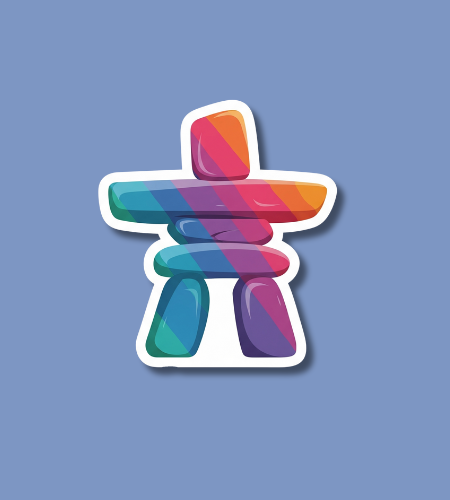Nunavut Day, celebrated on July 9, marks the approval of the Nunavut Land Claims Agreement and the Nunavut Act in 1993—major milestones that led to Nunavut formally becoming a distinct territory of Canada in 1999. This day is a powerful celebration of Inuit self-determination, culture, and resilience.
History of Nunavut Day
On July 9, 1993, the Canadian Parliament passed the Nunavut Land Claims Agreement and the Nunavut Act, formally recognizing Inuit land rights and paving the way for a new territorial structure. Although Nunavut officially came into existence on April 1, 1999, the land claims agreement held deeper symbolic significance to the Inuit, leading to the observance of Nunavut Day on July 9 since 2001.
Since then, July 9 has become a statutory holiday in Nunavut, recognized by schools, government institutions, and many businesses. The day is celebrated across communities with events that blend joy with cultural pride—reflecting both the achievements and the ongoing journey of the territory.
Why is Nunavut Day important?
Nunavut Day symbolizes more than political change—it’s a celebration of Inuit sovereignty and cultural preservation. It’s a testament to the commitment of Inuit leaders and communities who worked tirelessly to ensure their voices were heard, their language respected, and their land protected.
The day also fosters unity across generations. When families gather for traditional storytelling, music, and communal meals, they reinforce their shared heritage. It’s a moment of collective reflection, pride, and vision for the future of “our land.”
- It marks the formal acknowledgment of Inuit land claims and rights
- It honors the leadership and resilience of Inuit negotiators
- It reinforces cultural identity through language, art, and community gatherings
- It reminds us that political recognition begins with cultural respect
- It brings together different generations to celebrate shared values
How to Celebrate Nunavut Day
On July 9, join the celebrations—whether in person or virtually. Attend local events like dances, games, and barbecues featuring Arctic cuisine such as muskox burgers or bannock. These gatherings are rooted in both tradition and communal joy.
If you’re outside Nunavut, use the day to learn about Inuit culture and history. Read Inuit-authored books, watch documentaries, or share resources about the land claims journey. By understanding the significance of this day, you engage as an ally and amplify Indigenous voices.
- Attend or watch community gatherings featuring dance, music, or speeches
- Enjoy traditional foods like bannock, Arctic char, or muskox delicacies
- Learn about the Nunavut land claims process and Inuit leadership
- Read books or articles by Inuit authors and historians
- Share stories and images online with #NunavutDay to spread awareness
Holiday Dates Table
| Year | Date | Day |
|---|---|---|
| 2025 | July 9 | Wednesday |
| 2026 | July 9 | Thursday |
| 2027 | July 9 | Friday |
| 2028 | July 9 | Sunday |
| 2029 | July 9 | Monday |
Subscribe to our newsletter and never miss a holiday again!

